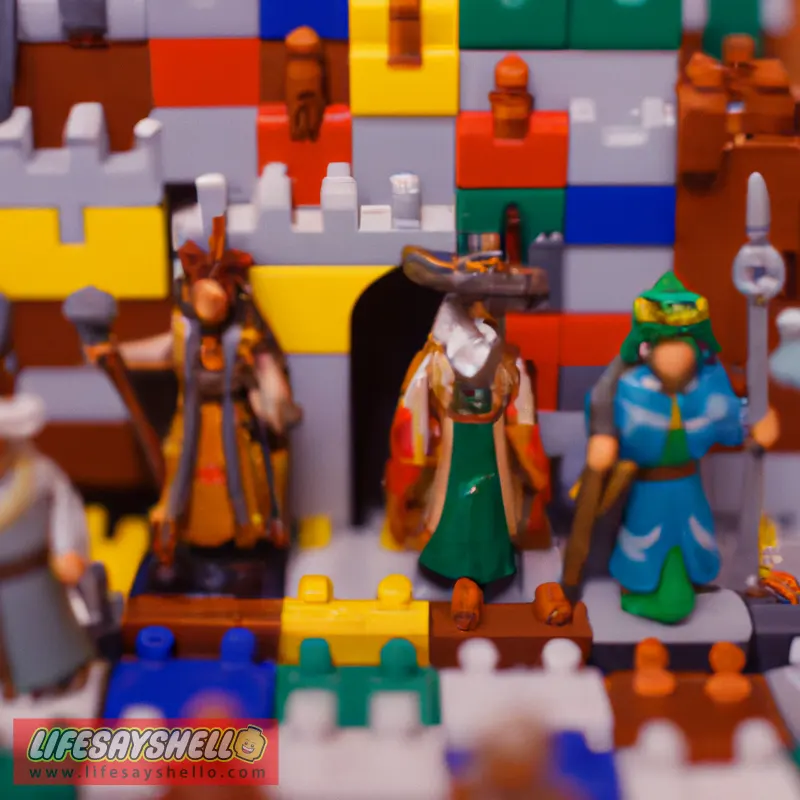Who is Allah - Understanding the Islamic God

Allah is the one supreme God in the religion of Islam. To understand the Islamic faith, it is essential to have a clear conception of who Allah is according to Muslim belief. This article will provide an introductory overview of Allah - His names and attributes, how He is described in the Quran, and His relationship with humans.
The Arabic word “Allah” simply means “God” or “the God”. Allah is not considered to have a plural or gender, and does not have associates or offspring. For Muslims, Allah is the almighty, indivisible and utterly transcendent creator and sustainer of all existence.
Allah’s Names and Attributes Highlight Mercy, Power and Wisdom
The Quran describes Allah using numerous names and attributes that emphasize qualities like mercy, justice, knowledge, power and wisdom. Some of Allah’s most important names include:
- Ar-Rahman - The Most Gracious
- Ar-Raheem - The Most Merciful
- Al-Malik - The Absolute Ruler
- Al-Quddus - The Most Pure
- As-Salam - The Embodiment of Peace
- Al-Muhaymin - The Guardian
- Al-Aziz - The Victorious
- Al-Jabbar - The Compeller
- Al-Mutakabbir - The Supreme
These names highlight Allah’s benevolence as well as his absolute authority over all creation. Other names like Al-Aleem (The All-Knowing) and Al-Hakeem (The Most Wise) emphasize Allah’s perfect knowledge and wisdom.
The Shahada, the basic Islamic creed, declares that “there is no god but Allah”. This affirms His oneness and uniqueness as the sole divinity worthy of worship. Allah is eternal and has always existed. He does not beget nor was He begotten. Allah is self-sufficient and absolutely independent of all creation.
The Quran describes Allah as being perfect, singular, immortal, omnipotent, omniscient, and completely infinite in all His attributes. He is utterly transcendent, incomparable and similar to nothing in creation. Allah is depicted as being far above any human limitations or anthropomorphic qualities.
Allah is Guardian, Provider and Sustainer of Humans
What does the Quran reveal about Allah’s relationship with human beings? There are several key aspects:
Firstly, Allah is recognized as the guardian, provider and sustainer of all mankind. One of His names, “Rabb-ul-Alameen”, means the Lord of all the worlds, conveying his role as the caretaker of all creation.
Secondly, Muslims are meant to have a balanced relationship with Allah, fully aligned with His being the “Most Gracious” and “Most Merciful”. On one hand, believers fear Allah’s punishment for sins and disobedience. But on the other, they remain hopeful of His infinite mercy, forgiveness and salvation.
Thirdly, Allah is closer to humans than their own selves. He knows the innermost thoughts and suggestions of the soul. If Allah feels distant to someone, it is because that person has distanced themselves from Him through negligence and sin. The Quran says:
“And when My servants ask you, [O Muhammad], concerning Me - indeed I am near. I respond to the invocation of the supplicant when he calls upon Me. So let them respond to Me [by obedience] and believe in Me that they may be [rightly] guided.” (Quran 2:186)
So while Allah is absolutely transcendent and unknowable in His essence, He can be felt to be very close by those who sincerely seek Him.
Intention and Deeds Should Be Directed Towards Pleasing Allah
Due to their direct relationship with Allah, Muslims are expected to perform every deed with the intention of pleasing God. Even the most routine mundane acts can become spiritually meaningful if carried out mindfully and sincerely for Allah’s sake.
The nature of the relationship between humans and Allah has been described as a “bargain” based on faith. By sincerely reposing belief and trust in Allah (known as Iman in Islamic terminology), one essentially bargains their life and belongings with Him in return for Paradise in the eternal Hereafter. All of one’s intentions and actions should ideally be directed toward fulfilling one’s part of this bargain in hope of salvation.
The Quran and Hadith (sayings of Prophet Muhammad) provide detailed guidance on the deeds, etiquette and behavior that pleases Allah. Some examples include:
- Upholding regular prayer (salah) with mindfulness and reverence
- Giving charity and caring for the needy
- Treating others, even enemies, with kindness and forgiveness
- Being just, honest and morally upright in all dealings
- Striving sincerely to live according to Allah’s commands
While simply carrying out religious rituals mechanically is discouraged, doing so with sincerity, awareness of Allah, and the intention to please Him is greatly rewarded. Islam emphasizes the quality of actions over quantity.
Allah Cannot Be Fully Conceptualized, But is Known Through His Creation
It must be recognized that Allah, in His infinite grandeur and majesty, cannot be fully conceptualized or understood by the finite human mind. The Quran states:
“And they encompass not a thing of His knowledge except for what He wills.” (Quran 2:255)
Any attempt to depict or describe Allah ultimately falls short, as “There is nothing like unto Him” (Quran 42:11).
However, Muslims can still grow inawareness of Allah by contemplating and reflecting on His qualities that are manifested through His creation. Through observing the marvels of the natural world and one’s own inner conscience, the believer better comprehends Allah’s majesty, wisdom and sublime power. As the Quran says:
“[He is] Creator of the heavens and the earth. He has made for you from yourselves mates, and among the cattle mates; He multiplies you thereby. There is nothing like unto Him, and He is the Hearing, the Seeing.” (Quran 42:11)
So while the essence of Allah remains ultimately unfathomable, believers can still strengthen their relationship with Him by focusing on His names and attributes. These allow for an appreciation of Allah’s greatness, and motivate one to align their life and character accordingly to attain nearness.
In Conclusion, Understanding Allah is Key to Islam
In summary, Allah is the supreme being in Islamic belief - the almighty, singular and transcendent God who is creator and sustainer of the universe. He is characterized by names and qualities that emphasize mercy, wisdom and authority over creation.
Muslims believe they share a direct, personal relationship with Allah as His servants and vicegerents on earth. By living in remembrance of Him, worshipping Him sincerely, and molding one’s intentions and deeds toward seeking His pleasure, the believer draws nearer to Allah. Although Allah remains unknowable in His unfathomable essence, His names allow believers to appreciate and understand Him better.
Grasping the Islamic conception of who Allah is provides tremendous insight into the foundation of the Islamic faith. It enables one to understand the motivations behind Muslim worship and conduct. As the Quran repeats over two hundred times, the key message of Islam is to worship Allah alone in sincerity, without associating any partners with Him.




Comments